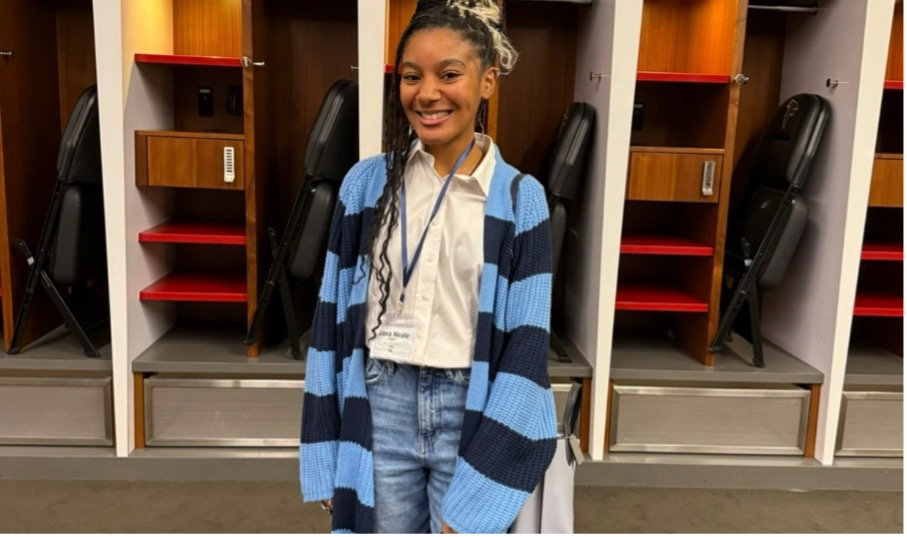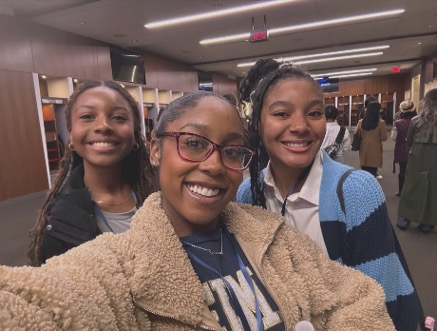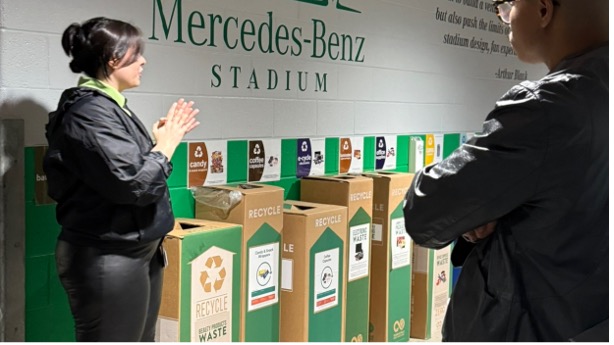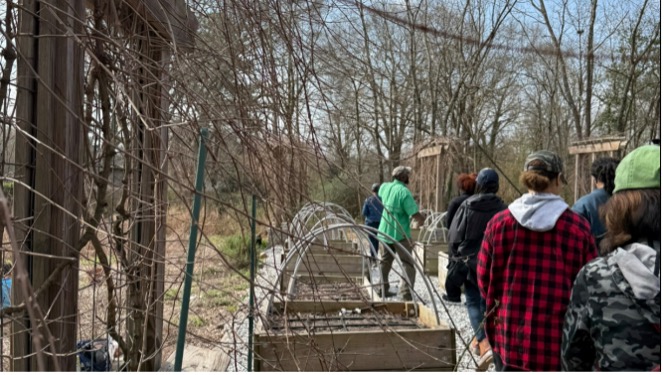
Zora Neale Walton, Environmental Science Major at Spelman College, Class of '2026
Young leaders are playing an increasingly vital role in driving sustainability efforts and shaping a more just and sustainable future. Zora Neale Walton, C’2026, chosen to be a Spring 2025 Sustainability Ambassador for the City of Atlanta, is a shining example of how Spelman continues to make a meaningful impact in our communities. Through her dedication to environmental justice and hands-on involvement in sustainability projects, she’s contributing to a more resilient and sustainable world. In this interview, we explore her journey into the program, the initiatives she’s most passionate about, and the ways she’s helping to create positive change.
Iesha Baldwin: Can you tell us what inspired you to join the Sustainability Ambassador Program, and how does it align with your studies or passions at Spelman?
Zora Neale Walton: I joined the Sustainability Ambassador program to deepen my understanding of sustainability in the Atlanta community. As an environmental science major, I’ve spent the past few years focusing on areas like water resources, environmental health, climate justice and geology. This program provided the perfect opportunity to apply my academic knowledge in a real-world context and connect with others who share similar passions. It also allowed me to contribute to sustainability goals beyond the classroom, working toward resilience in the city.

Zora with other ambassadors from Spelman touring the Merces Benz Stadium (Photo Credit: Zora Neale Walton)
Iesha Baldwin: What’s a project or initiative you’ve worked on in the program that you’re especially proud of, and how does it benefit the community?
Zora Neale Walton: I’m especially proud of my capstone project, which focuses on creating a blog that highlights small, sustainable changes individuals can make to reduce their environmental impact. The blog showcases accessible habits like using reusable water bottles or flipping thrifted clothes, making sustainability easy for people to adopt. By emphasizing reuse, recycling and reducing waste, the project aims to lower individual carbon footprints and inspire change in the community.
Iesha Baldwin: What skills or knowledge have you gained through the program that you’ll bring back to Spelman or your future career?
Zora Neale Walton: This program has significantly expanded my knowledge of green infrastructure, resilient cities, and sustainable energy practices. It’s also deepened my understanding of environmental disparities and the importance of equity in sustainability efforts. I've gained valuable insights into community organizing and social inclusion, and I’m excited to take these skills back to Spelman, where I envision collaborations with organizations like the Mercedes Benz Green Team. In the future, I hope to work in the environmental justice nonprofit sector, advocating for policies and practices that prioritize underserved communities.

Mercedes Benz Stadium Green Team workshop (Photo Credit: Zora Neale Walton)
Iesha Baldwin: How has the program shaped your perspective on environmental justice, particularly in communities of color?
Zora Neale Walton: The program has truly broadened my understanding of environmental justice. Before joining, I hadn’t realized the critical role of recovering deconstructed building materials to benefit lower-income communities. This approach empowers communities of color both environmentally and economically, giving them the opportunity to participate in sustainability efforts while making building materials more affordable. It's made me think critically about climate resilience and the importance of ensuring that all communities are included in sustainability discussions.
Iesha Baldwin: What’s been an unexpected "wow" moment during your time as an ambassador?
Zora Neale Walton: One unexpected "wow" moment was during our visit to the Urban Food Forest at Browns Mill. At 7.1 acres, it’s the largest public food forest in the country, providing fresh produce to the local community. I was amazed by how it combines environmental sustainability with food security, using agroforestry techniques to grow and distribute fresh food. The visit showed me firsthand how environmental justice and community empowerment can intersect in meaningful ways.

Urban agriculture workshop at Browns Mill Forest (Photo Credit: Zora Neale Walton)
Iesha Baldwin: How do you see sustainability efforts evolving at Spelman, and what role do you hope to play in that transformation?
Zora Neale Walton: I envision Spelman becoming a leader in sustainability for HBCUs. From composting programs to solar panels and meatless Mondays, there’s so much potential to build on. I’d love to see environmental science integrated into the core curriculum, ensuring all students understand the importance of sustainability. Personally, I hope to continue connecting students to community gardens through the Environmental Task Force and lead initiatives that promote sustainability both on campus and in surrounding communities.
Iesha Baldwin currently serves as sustainability coordinator for Spelman College.